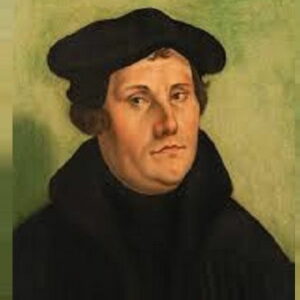Luther Martin, a lawyer and politician, was a founding father of the United States of America who refused to sign the Constitution because he believed it violated states’ rights. He was a staunch supporter of the patriotic cause and an early proponent of American colonies’ independence from Great Britain. He was a great lawyer with a successful practice before entering politics. He could not, however, ignore the condition of relations between the colonies and the United Kingdom. He was a member of Somerset County’s patriot committee and passionately opposed British attempts to levy taxes on the colonies. He was appointed Attorney General of Maryland, where he prosecuted a large number of Loyalists. He was elected to the Constitutional Convention in Philadelphia in 1787, where he advocated smaller states and opposed the establishment of a government in which stronger states could dominate smaller ones. He was a staunch anti-federalist who believed the US Constitution infringed on state rights. He supported revisions to the Bill of Rights that guaranteed a variety of personal freedoms and limited the government’s judicial jurisdiction. He, together with Patrick Henry and George Mason, were instrumental in the passage of the Bill of Rights.
Childhood and Adolescence
He was born in New Jersey, the son of farmers Benjamin Martin and Hannah Martin.
In 1766, he graduated from the College of New Jersey (later became Princeton University).
Luther Martin’s Career
In Maryland, he became a schoolmaster at the Queen Anne’s County Free School. He began studying law on his own during this time, utilizing borrowed books.
He accepted superintendents at the Onancock Grammar School on Virginia’s Eastern Shore in 1770. He continued to teach there until 1771 when he passed the bar exam.
He began practicing law and quickly established himself as an accomplished lawyer. He quickly became well-known and had a sizable clientele. In Virginia and Maryland, he had a reputation as a very intellectual and capable lawyer.
The successful lawyer was an early supporter of the American colonies independence from Britain. He was a patriot who opposed British attempts to levy taxes on the colonies.
In 1774, he was chosen to the Somerset County Patriot Committee. The Committee was in charge of encouraging patriotism by executing the Continental Congress’s resolutions. He also went to one of the Maryland Conventions, which were organized to unite the colonies in their opposition to British policies.
Maryland established the office of the attorney general when it approved its first state constitution in November 1776. In 1778, Martin was appointed to this position.
Following this position, he proceeded to Baltimore, Maryland, where he joined the Baltimore Light Dragoons, a cavalry corps. In 1781, however, he only served for a few weeks in the army before returning to his law practice.
After the war, he became a successful lawyer and a prominent member of the Maryland bar. His legal education and experience, as well as his long term as Attorney General, helped him mold this post into an important part of the state government.
He was elected to the Continental Congress in 1785, but due to his private practice and personal duties, he was unable to come to Philadelphia.
In 1787, he was elected as a delegate to the Philadelphia Constitutional Convention. He was a staunch opponent of a strong central authority that would allow larger states to dominate smaller ones. He contributed to the development of the New Jersey Plan and voted against the Virginia Plan.
Martin declined to sign the proposed new Constitution because he opposed it. During the years 1787-1788, he explained his objections in an address to the Maryland House of Delegates and numerous newspaper pieces.
He backed the Bill of Rights, which suggested amendments to the United States Constitution that guaranteed many personal freedoms and safeguarded individual rights while limiting the government’s judicial powers in certain situations. In 1791, the revisions took effect.
By the turn of the century in 1800, he was a well-established and successful lawyer with a thriving practice. He resigned from his position as state attorney general in 1805 after a record 28 years in the position.
In 1818, he was re-elected Attorney General of Maryland, but due to health issues, he retired in 1822.
His Major Projects
He was a staunch anti-federalist and one of the founding fathers of the United States of America. He was instrumental in the creation of the Bill of Rights, which ensured that citizens’ individual rights were protected. He was also an accomplished and well-liked lawyer.
Personal History and Legacy
Martin married Maria Cresap, Captain Michael Cresap’s daughter, in 1783. The couple had five daughters, three of whom lived to adulthood.
His fortunes deteriorated significantly in his final years. He had developed an addiction to alcohol and drank excessively. This behavior has a negative impact on his financial and mental health. In 1819, he became paralyzed and died in 1826.
Estimated Net worth
Martin Luther King, Jr. was a minister for the American Baptist Church, a humanitarian, an activist, and a leader. When he died in 1968, he was worth $250,000. (after adjusting for inflation). Martin Luther King Jr. was a Baptist minister and civil rights leader who was well-known in the middle of the 20th century.


